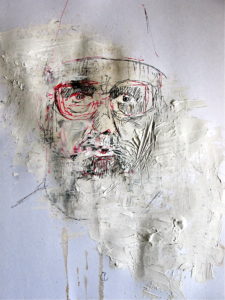
Four top leaders of Jamaat-e-Islami have been arrested and stand accused of war crimes and crimes against humanity in the murder of Bengali intellectuals during the Pakistani military’s strategic massacre of then East Pakistan’s Bengali and Hindu communities.
The Daily Star reports, quite movingly:
“They are no stranger to court. They stood in the dock before. But their appearance at the International Crimes Tribunal yesterday marks a watershed. For it was the first time the four top Jamaat-e-Islami leaders were in court as accused in the long-awaited war crimes trial.”
“Jamaat Ameer Motiur Rahman Nizami, Secretary General Ali Ahsan Mohammad Mojahid, Senior Assistant Secretaries General Mohammad Kamaruzzaman and Abdul Quader Molla were brought to the courtroom around 10:30am [local time].”
Consider the lower depths to which these 4 have stooped, now only publicly so. Consider the milling parade, a display of some putrid meat put up for inspection.
“For yesterday’s proceedings, security was tight in and around the old High Court building that houses the tribunal. The law enforcers swept the entire compound to make sure no explosives were planted.”
“Despite the stringent measures, people gathered to see the four Jamaat leaders, the first ones to have been produced before the tribunal in the war crimes trial.”
Whether this is a political move, an electoral pledge fulfilled, emotions are running deep. We can talk about the strain of justice here, but have no doubt justice of some heralded form is being meted out.